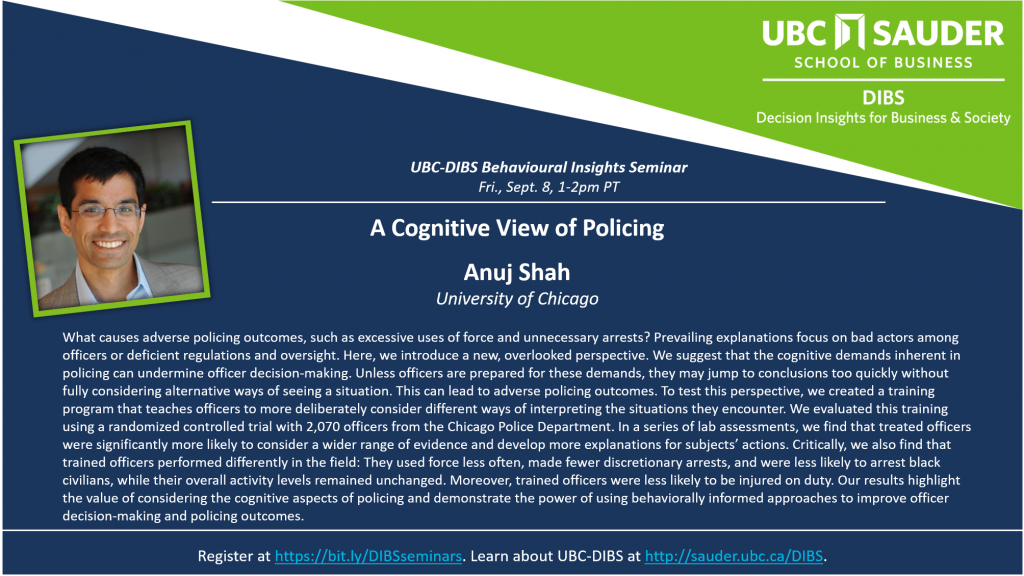UBC-DIBS Behavioural Insights Seminar
Friday, Sept. 8, 1-2pm PT
Register to attend on Zoom at https://bit.ly/DIBSseminars

A Cognitive View of Policing
Anuj Shah
University of Chicago
What causes adverse policing outcomes, such as excessive uses of force and unnecessary arrests? Prevailing explanations focus on bad actors among officers or deficient regulations and oversight. Here, we introduce a new, overlooked perspective. We suggest that the cognitive demands inherent in policing can undermine officer decision-making. Unless officers are prepared for these demands, they may jump to conclusions too quickly without fully considering alternative ways of seeing a situation. This can lead to adverse policing outcomes. To test this perspective, we created a training program that teaches officers to more deliberately consider different ways of interpreting the situations they encounter. We evaluated this training using a randomized controlled trial with 2,070 officers from the Chicago Police Department. In a series of lab assessments, we find that treated officers were significantly more likely to consider a wider range of evidence and develop more explanations for subjects’ actions. Critically, we also find that trained officers performed differently in the field: They used force less often, made fewer discretionary arrests, and were less likely to arrest black civilians, while their overall activity levels remained unchanged. Moreover, trained officers were less likely to be injured on duty. Our results highlight the value of considering the cognitive aspects of policing and demonstrate the power of using behaviorally informed approaches to improve officer decision-making and policing outcomes.
The UBC-DIBS Behavioural Insights Seminar series features researchers and practitioners sharing their field and lab projects using the behavioural and decision sciences to “nudge for good”. Recordings of past seminars are available on the BI wiki here. To subscribe or unsubscribe, email dibs@sauder.ubc.ca.
